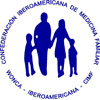The Community Apgar Project: evidence and action for rural Family physician recruitment
Resumo
Objetivos: The Community Apgar Project identifies factors and their relative importance in recruiting physicians to rural communities. It provides specific strategic planning information to communities for solutions while aggregating information on trends in practice, finance, and community integration.
Metodologia ou Descrição da Experiência: The Community Apgar Questionnaire (CAQ) assesses a community’s capability to recruit family physicians. The CAQ consists of questions incorporated into five classes (geographic, economic, scope of practice, medical support, hospital/community support). Each class contains ten factors, for a total of fifty factors/questions representing specific elements related to recruitment and retention of rural family physicians. The CAP utilizes the results compiled over a two year period to provide a real time assessment of a community’s ability to develop and execute action plans for improvement. A national data base trending this data has been constructed for geographic and historical analysis.
Resultados: In the United States, rural communities in six states have utilized the Community Apgar Program to identify the highest priority areas of improvement for recruiting family physicians to their situation. Likewise, findings are used for specific advertising to match the best suited physician. The information gathered in aggregate is also used in policy development such as increasing mental health support, use of technology, economic factors and physician integration into rural community life. This session will discuss the most important advantages and challenges identified and seek to elicit audience participation regarding factors well known in other countries outside the United States.
Conclusão ou Hipóteses: The Community Apgar Project is a research tool assisting individual communities in prioritizing resources in the recruitment of rural family physicians. In the United States a national database has been constructed to analyze trends and impact policy to improve the circumstances of rural health. The authors welcome international perspective and feedback in adapting the project for broader use.
Palavras-chave
Texto completo:
PDF (English)Apontamentos
- Não há apontamentos.
Este periódico é de responsabilidade das associações:
Apoio institucional:







